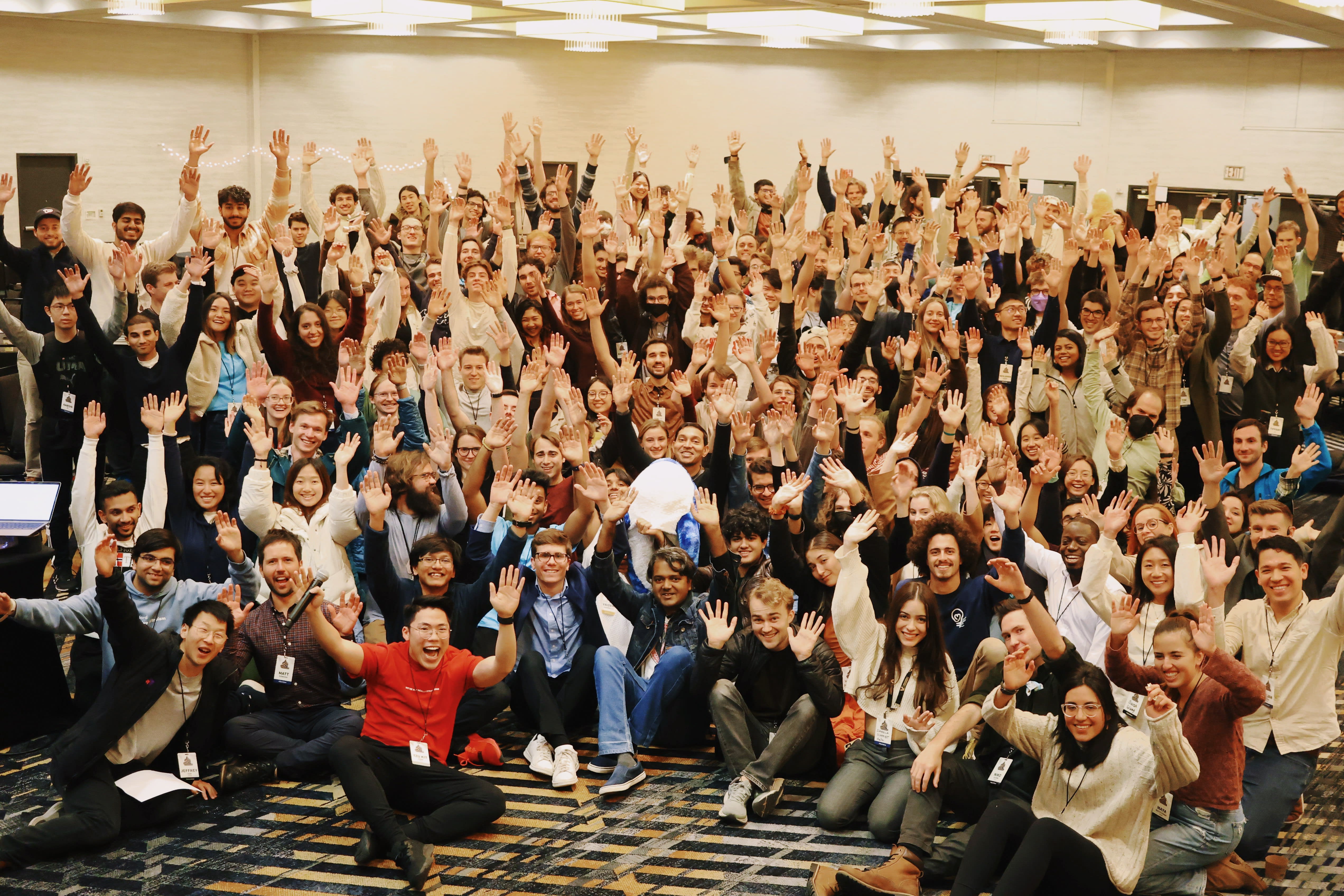This post is part of the Community Events Retrospective sequence.
Applications are now open for local EA community-builders to express interest in hosting an EAGx event in 2024. Please apply here.
There is no deadline for this application, but we will only consider applications for events proposed at least 6 months in advance.
What are EAGx events?
EAGx conferences are locally-organized conferences designed primarily for people:
- Familiar with the core ideas of effective altruism;
- Interested in learning more about what to do;
- From the region or country where the conference is taking place (or living there).
Since the start of 2022, EAGx events have been hosted in Warsaw, Stockholm, Cambridge, Jaipur, Mexico City, Berkeley, Rotterdam, Berlin, Singapore, Canberra, Prague, Boston and Oxford.
An EAGx event typically takes place over 2 days and will typically involve:
- Talks and workshops on pressing problems that the EA community is currently trying to address and ideas to help the community achieve its goals;
- The opportunity to meet and share advice with other EAs in the community, including meet-ups for people who share interests or backgrounds;
- Social events at and around the conference.
Just like there are TED and TEDx conferences, there are EAG and EAGx conferences. The 'x' indicates that this is a community-organised EAG event.
EA Global (EAG) conferences are organised by the Centre for Effective Altruism, and people from all over the world attend these. The team at CEA is responsible for choosing the content, processing admissions, and production of the conference.
EAGx events, on the other hand, are community-organised with support from CEA. The target audience for EAGx events is broader than EAG, but tends to have a more regional focus. CEA provides funding and support to EAGx events (e.g. access to our event app), but the local community organisers are responsible for choosing content, processing admissions, and production of the conference.

What’s the impact case?
- As outlined in a previous post, we find that EAGx events are a particularly cost-effective way of building the EA community. We think there are increasing returns to scale, such that large events like EAGx events can provide more value per dollar than smaller community-building retreats.
- Open Philanthropy’s 2020 survey of people involved in longtermist priority work (a significant fraction of work in the EA community) found that about half of the impact that CEA had on respondents was via EAG and EAGx conferences.
- More anecdotally, we regularly encounter community members who cite EAGx events as playing a key part in their EA journey. You can read some examples from our recent analysis.
- Organisations associated with the EA community report that EA conferences are an excellent place to hire additional staff and launch new projects.
- EAGx events help increase the diversity and global reach of the EA community and related communities (x-risk, animal welfare, global health). For example, we suspect that EAGx events are likely one of the only large events where serious consideration of existential risks takes place in many parts of the world (e.g. India, Latin America, East Asia).
But we can’t make these events happen without local organisers! EAGx organisers counterfactually make many of the above effects possible. In most cases, if organisers didn’t step forward, the event simply wouldn’t happen.
How will CEA decide?
We aim to run events such that anyone familiar with EA who is interested in learning more can attend an event to connect with other EAs. This means we’re focused on serving regions where:
- There are a sufficient number of people interested in EA to make a full conference (approximately 200 or more people);
- There is an active EA group that can organise the event;
- There won’t be significant logistical obstacles if we choose that area (e.g. visa issues for many attendees);
- There isn’t a clashing EAGx event.
Regions will vary in size quite dramatically because of the spread of EAs around the world. For example, there are a sufficient number of EAs in the Nordic countries to warrant an EAGxNordics. There is also a sufficient number of EAs in all of East Asia to warrant an EAGx in that region each year (Singapore in 2022, Philippines in 2023) but East Asia has a population ~50 times bigger than the Nordics.
For 2024, we are especially excited to support organisers who can operate autonomously. This means that we’ll favour applications from teams with events experience (especially EAGx event experience) and teams that can be fiscally independent (i.e. can operate as part of an organisation that can accept grants and make payments themselves. A national EA organisation is the ideal here).
We still expect to support organisers who do not meet these criteria, so we strongly encourage you to apply even if you don’t have events experience or a registered national EA group. We’re also excited to support EAGx events in new locations we haven’t looked at before.
If you have any questions, feel free to contact me on ollie@eaglobal.org



Update here: we're supporting an EA Summit in Abuja, Nigeria on 6–7 September :)
https://forum.effectivealtruism.org/posts/8eWysFRNK9biZnECY/announcing-the-ea-nigeria-summit